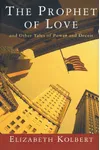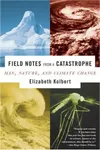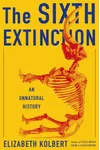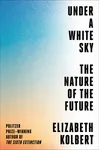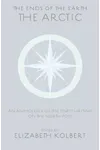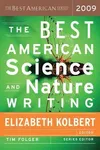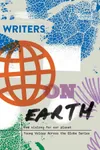Picture a storyteller who treks from Arctic ice to desert pools, weaving tales of a planet in peril—meet Elizabeth Kolbert! This Pulitzer Prize-winning journalist has spent decades shining a light on humanity’s impact on Earth, blending sharp science with gripping narratives. Her work, like the bestselling The Sixth Extinction, has made climate change and biodiversity loss impossible to ignore.
Kolbert’s knack for turning complex environmental issues into page-turners has earned her a spot as one of today’s most influential voices in environmental journalism. With a career rooted at The New Yorker, she’s not just reporting—she’s reshaping how we see our world.
The Making of Elizabeth Kolbert
Born on July 6, 1961, in New York City, Elizabeth Kolbert grew up with a curiosity about nature that even the Bronx’s concrete couldn’t stifle. Family trips to parks sparked her love for the wild, setting the stage for her future. She studied literature at Yale, snagged a Fulbright Scholarship to Germany, and kicked off her career as a stringer for The New York Times in 1983. By 1999, she’d landed at The New Yorker, where her focus shifted from politics to the planet.
Her early days covering New York’s political scene—think profiles of Hillary Clinton and Rudy Giuliani—honed her ability to distill big ideas into vivid stories. But it was climate change that captured her, turning her pen toward the urgent story of Earth’s transformation.
Elizabeth Kolbert’s Unforgettable Stories
Kolbert’s writing is a masterclass in making science sing. Her 2005 series, The Climate of Man, published in The New Yorker, was a wake-up call on global warming, earning a National Magazine Award. It grew into her first major book, Field Notes from a Catastrophe: Man, Nature, and Climate Change (2006), where she traveled from Alaska to Iceland, capturing the human and ecological toll of a warming world.
Her 2014 blockbuster, The Sixth Extinction: An Unnatural History, won the Pulitzer Prize for its chilling exploration of humanity as a force rivaling asteroids in wiping out species. From vanishing frogs to fading coral reefs, Kolbert’s storytelling is both heartbreaking and urgent. Under a White Sky: The Nature of the Future (2021) tackles geoengineering’s wild solutions—like cooling the planet with stratospheric diamonds—while her latest, H Is for Hope: Climate Change from A to Z (2024), offers bite-sized essays on our environmental crossroads, paired with haunting illustrations.
Her style? Think meticulous research meets a novelist’s flair. Kolbert doesn’t preach; she takes you on a journey, blending scientist interviews, field reporting, and historical context to make the Anthropocene—the age of human dominance—feel personal.
Why Elizabeth Kolbert Matters
Kolbert’s work has done more than inform—it’s sparked a movement. Her books have inspired activists, scientists, and policymakers, making climate change a dinner-table topic. By framing humanity as both culprit and potential savior, she challenges us to act. Her influence stretches globally, earning her awards like the Heinz Award and the BBVA Biophilia Award, and her legacy lies in showing that journalism can be a force for change.
She’s also a trailblazer for environmental storytelling, proving that hard truths can be told with grace and urgency. As climate crises intensify, Kolbert’s voice remains a beacon, urging us to confront the future with eyes wide open.
About Elizabeth Kolbert
- Born: July 6, 1961, New York City
- Key Works: Field Notes from a Catastrophe, The Sixth Extinction, Under a White Sky, H Is for Hope
- Awards: Pulitzer Prize (2015), two National Magazine Awards, BBVA Biophilia Award (2022)
- Fun Fact: She’s a visiting fellow at Williams College, where she lives with her husband and three sons.
Ready to explore a world on the brink? Snag The Sixth Extinction and dive into Elizabeth Kolbert’s riveting take on our planet’s past, present, and future!
